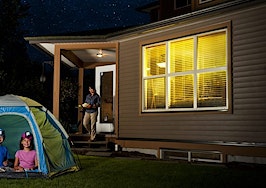- Before purchasing a condo, make sure your client reviews the community's homeowners association and its history.
- A mismanaged HOA can hurt properly values and bring about unneeded fees and stress to homeowners.
- This list is not meant to make your clients run for the hills, but be more diligent.
Glen Shelhamer is a Los Angeles real estate agent with The Shelhamer Real Estate Group
A condo is basically like buying an apartment, but you own the interior airspace. You own only the space inside the unit you purchase, not the land below — the major difference between a condo purchase and a single-family home.
To maintain the common spaces, the homeowners association (HOA) will require the payment of a monthly fee, which hopefully will be sufficient to cover general repairs and maintenance of the complex as well as (hopefully) a build-up of cash reserves for future needs and property improvement.
Unfortunately, if funds are mismanaged or the HOA fails to levy a sufficient monthly fee to allocate for needed maintenance items, what can result is one or more “special assessments” — a one-time charge assessed to each condo owner to cover exterior maintenance or major repair such as a new roof or plumbing or electrical work.
Most common issues
There are three typical problems faced by condo owners with whom I have dealt:
The first is the potential for the HOA to levy a large special assessment against each and every unit in the complex if the building has been mismanaged for a significant amount of time or if insufficient dues have been collected for a significant period of time.
[Tweet “”There are three typical problems faced by condo owners with whom I have dealt””]
The second is the risk that an individual homeowner or an outside party will bring a lawsuit against the HOA, which can incur legal bills that come out of the HOA budget.
The third issue is what can occur if needed repairs and maintenance are not completed and the property slips into disrepair. This often causes the property value to deteriorate over a longer period of time.
What to look for
Pending lawsuits: Check for any pending lawsuits against the development and/or the homeowners association, as such can lead to large special assessments levied against each unit.
CC&Rs and rules: Read the condo’s covenants, conditions and restrictions (CC&Rs), and any other rules adopted by the board of directors that may place restrictions on renting the unit, improving the interior of the unit, painting the exterior of the unit, the color or type of front door your clients may install and more.
Make sure the development is separately incorporated: If not, your clients could be headed for a world of pain if their unit is an unincorporated association which occurs and carries some risk to them as a unit owner.
Insurance: Find out about the type of insurance for liability, fire and other perils that the HOA maintains. For example, do they carry a separate policy of earthquake insurance?
Renters vs. owners: Find out how many of the owners live in their units and how many of them are actually rented out. If 25 percent or more of the development is rented, it’s likely that parts of the complex will not be as well cared for and there may be additional problems with noise and maintenance, which can effect the resale value.
HOA finances: Make sure you and your clients do their homework on the finances of the HOA. It is very important to determine if the HOA is in debt or has a balanced budget with sufficient reserves to cover normal maintenance and emergency situations, as well as a carefully planned budget for major items such as a new roof, plumbing, air conditioning, new stucco, painting, etc.
Future value: What is the noise level above, below and outside the proposed unit, and the building, at different times of the day? Is the parking adequate not only for the residents, but for visitors? Is that important to your clients? How many condominiums are for sale in the complex? How big is the complex? How may units have sold in the past two years? Are newer condos being built nearby that may affect your client’s unit price?
Asks those questions and more.
Conclusion
This list is not meant to make your clients run for the hills, but be more diligent. If your clients are seriously considering buying a condo in L.A., it is important that they understand all of the documents, bylaws, CC&Rs and condo rules. It is also a good idea to encourage them to meet their potential neighbors if they get a chance.









